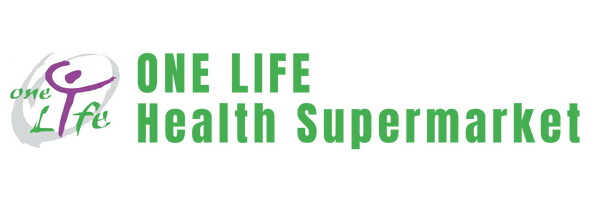- Health Supplements
- Health Conditions
- Skin & Beauty
- Food Pantry
- Sports Nutrition
- Kids Health
- Healthy Home
- Pet Health
- Superfoods
- Vivid Health
-
Shop By Brand
- A.Vogel
- ABSOLUTE ORGANIX
- ADORE NATURE
- AETHER HERBALIST & APOTHECARY
- AFRICAN CRANBERRY
- ALMANS
- ALOE UNIQUE
- ALTWELL
- AMIPRO & METAGENICS
- AROMATIC APOTHECARY
- BARE
- BACH
- BEA'S RUSKS
- BELINZONA
- BIOSIL
- BIOZEST
- BOODY
- BOUND OXYGEN
- BRAGG
- BUTTANUT
- CANNACO
- CARBSMART & HEALTH CONNECTION WHOLEFOODS
- CARING CANDIES
- CHARAVA
- CHINAHERB
- CILI-BAO
- CREDENCE PHARMA
- CREDÉ NATURAL OILS
- DELFRAN
- DNA BIOPHARM
- DNA Biopharm SA
- DR AUER'S
- EARTH PRODUCTS
- EARTHSAP
- ECO VALLEY NUTRITION
- EJ'S
- ENDUREN
- ESCENTIA
- ESSE
- FLORADIX
- FORTIFOOD
- FUTUREHEALTH
- GENOLOGIX
- GOOD HEALTH PRODUCTS
- GOOD LIFE ORGANIC
- GREEN GOLD MORINGA
- GREENPHARM
- HEALTH NUT
- HEEL
- HOOGLAND MINERAL WATER
- KURA
- LIFE AROMATICS
- MANNABREW
- MEDFORD
- MEDICO HERBS
- MINERALIFE
- NATROCEUTICS®
- NATTREND
- NATURA
- NATURAL ORANGE
- NATURE FRESH
- NATURE'S CHOICE
- NATURES COLOURS
- NEOGENESIS HEALTH
- NOW
- NPL
- NUTRIGREEN
- OILGROW
- ORGANIC INDIA
- OXYGEN PRODUCTS
- PEGASUS
- PHARMA GERMANIA
- PHYTOCEUTICS® (COYNE)
- PMR NUTRITION
- PRIMESELF
- PROBAC
- PROBIOTECH
- PURE BEGINNINGS
- PURE HERBAL REMEDIES
- PURE WATER PURIFIERS
- RAFAA
- SFERA BIO NUTRITION
- SILVER GENESIS
- SOARING FREE SUPERFOODS
- SOLGAR
- SONTAL
- SSA
- THE HARVEST TABLE
- THE REAL THING
- TIA'S MUESLI
- TIBB HEALTH
- VERHAKI
- VIRIDIAN
- VIVID HEALTH
- WAZOOGLES
- WELL I AM
- WILLOW
- YOUR WELLBEING
- ZINPLEX
VIRIDIAN - Selenium 200ug – 90 Veg Capsules
R 468.00
Description
Selenium contributes to the maintenance of normal hair and nails, the normal function of the immune system, normal thyroid function and for the protection of cells from oxidative stress. This ‘oxidative stress’ appears to be a major factor in many human diseases.
Selenium also contributes to normal spermatogenesis (the creation of sperm). Intensive farming has led to greatly reduced levels of this important mineral in our foods. This supplement presents selenium in the preferred selenomethionine form.
Vegan, Kosher
Selenium contributes to the maintenance of normal hair and nails, the normal function of the immune system, normal thyroid function and for the protection of cells from oxidative stress. This ‘oxidative stress’ appears to be a major factor in many human diseases. Selenium also contributes to normal spermatogenesis (the creation of sperm).
Intensive farming has led to greatly reduced levels of this important mineral in our foods.
This supplement presents selenium in the preferred selenomethione form.
Selenium is safe at the level people typically supplement (100–200 mcg); however, taking more than 900 mcg of selenium per day has been reported to cause adverse effects in some people.
Intakes of 750ug per day may result in biochemical abnormalities. Much higher levels may produce similar symptoms to that of deficiency.
Potential applications: Selenium has a broad range of activities and potential applications including; cardiovascular disease, male infertility, foetal health and development, thyroid regulation, anti-viral (particularly Coxsackie virus), elevated cholesterol (LDL), inflammatory conditions e.g. psoriasis and asthma. Other responsive conditions include auto-immune disorders, (e.g. Multiple sclerosis, thyroiditis), cataracts and acne.
Known contraindications: None known.
Interactions: Copper and selenium appear to interact, with copper deficiency giving rise to decreased activity of GSH. Many toxic elements such as; lead, cadmium, mercury, and gold possess selenium-antagonistic properties.
Selenium also interacts with the amino acid methionine. Dietary selenium is found as selenomethionine. Thus the potency of selenium in this form may be reduced if a situation of methionine deficiency exists. Supplemental seleno-methionine helps overcome this concern.
Deficiency of both vitamin E and selenium has been shown to increase markers of free radical damage on polyunsaturated fatty acids.
Useful links: Cellular protection – vitamin E, alpha lipoic acid, coenzyme Q10, flax seed oil, blue food blend.
Note Selenium deficiency in humans is known as Keshan’s disease. This condition results in dry flaky skin, loss of hair and skin pigmentation, whitening of nail beds, bilateral muscle discomfort, and pain, and cardiomyopathy. Thyroid and reproductive problems are common, along with the appearance of the Coxsackie virus.
Directions: As a food supplement, take one capsule daily with food, or as directed by your healthcare professional.
One vegetarian capsule provides:
| Ingredient | Weight | %EC NRV |
|---|---|---|
| Selenium (methionine) | 200ug | 364 |
| In a base of alfalfa, spirulina and bilberry |


